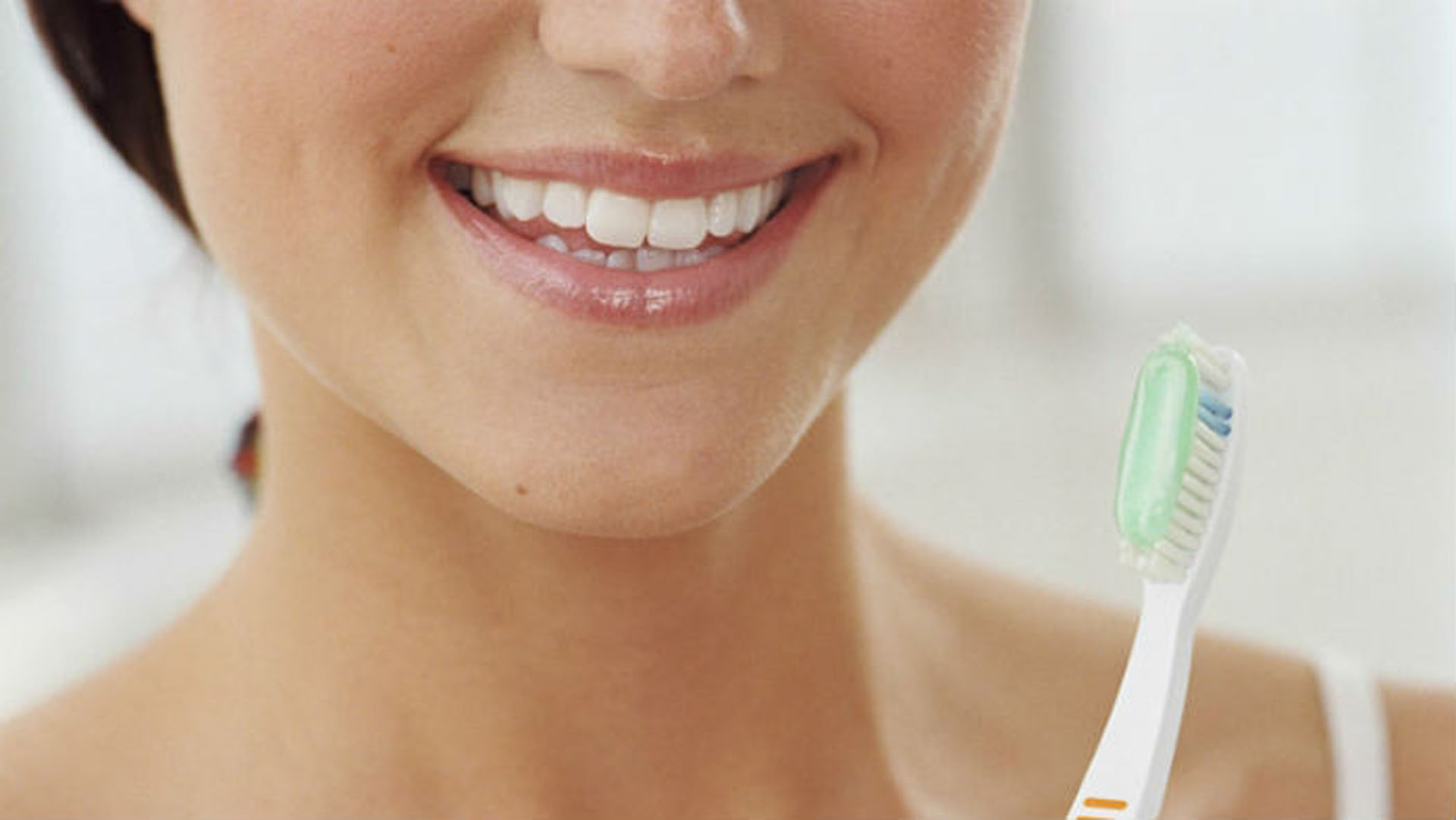-
If you’ve experienced it, you’ll know, sensitive teeth can cause a whole lot of pain. For you, it might be hot tea, for someone else, it could be ice cream – whatever the trigger, the pain it causes can be quite sudden and severe.
Take note, sometimes teeth sensitivity can be a sign of an underlying issue, such as tooth decay – so it’s always a good idea to see your dentist if it’s bothering you.
Here’s a quick rundown on what might be causing your sensitive teeth – and how you may be able to reduce the pain this can cause.
What causes sensitive teeth?
Our teeth can become sensitive when the enamel – the hard smooth outer layer – or gums wear away. When we lose these protective layers, it can expose the inner tooth structure, called the dentine. Nerves inside the dentine can cause the sensitivity and pain.
Some factors that may lead to this scenario include:
- tooth erosion from consuming too many acidic food or drinks
- teeth grinding or clenching while sleeping
- gums shrinking away from the teeth.
When the dentine is exposed, many different types of stimuli can cause your teeth to feel sensitive. Some common causes are:
- hot, cold or sweet foods or drinks
- cool air
- touch, such as from a toothbrush.
The pain you feel happens when a stimulus contacts the tooth. For many people, this is a short, sharp pain. You might feel it in just one tooth – or many.
If you’re still experiencing pain when the stimulus isn’t present, your pain might be from tooth decay.
If you’re not sure of the cause, it’s best to see your dentist to work out what’s going on in there.
Foods to eat or avoid for sensitive teeth
Certain foods and drinks we consume can impact tooth sensitivity. As you may have guessed, you might want to steer clear of too many sugary and acidic food and drinks. Sugar feeds bacteria which can encourage tooth decay.
On the other hand, there are some foods that can actually help our overall dental health, such as dairy (as long as it’s unsweetened), whole grains, leafy greens, eggs, and lean meats, poultry and fish.
Dairy products in particular, such as plain milk, can be a great help as, aside from containing strengthening calcium and vitamin D, it neutralises the acids found in sugary or acidic foods and drinks, and increases saliva, which helps wash away bacteria and food particles, in turn helping to prevent plaque.
READ MORE: 10 foods for clean, healthy teeth
How to prevent sensitive teeth
Looking after your general dental health is your best bet for preventing teeth sensitivity. Here are some aspects to keep in mind.
Brushing technique
It’s recommended that you brush two times every day with toothpaste that contains fluoride, and floss once a day. Be sure to not press too hard when brushing your teeth. It’s also a good idea to opt for a toothbrush with a small head and soft bristles.
Hydration
Tap water can help keep you hydrated, wash away food and bacteria, and add extra dental protection if it contains fluoride, which can strengthen your enamel. Keep in mind that adding citrus fruits such as lemon to your water may lead to tooth sensitivity or erosion, because of their acidic content – so try to keep this to a minimum.
Sugar intake
As mentioned, it’s a good idea to keep an eye on the amount of sugary and acidic drinks you consume, to reduce your chances of developing tooth sensitivity. Also, make sure you wait at least an hour after consuming sugary food or drinks to brush your teeth as brushing too soon can prompt tooth wear.
READ MORE: 4 reasons why you should reduce your sugar intake
Toothpastes
Desensitising toothpastes are designed to treat tooth sensitivity. If you often feel pain from sensitive teeth, this could be a good option for you. The ingredients they contain help soothe the nerves in the teeth and form a barrier over the sensitive areas to stop them from responding to stimuli.
If sensitivity persists, you may need to consider treatment.
Dental treatment
Your dentist can help diagnose if your sensitivity is from tooth decay and, if so, treat it for you. This sensitivity will normally go away when the tooth is fixed.
Having regular dental check-ups – every 6 to 12 months – is your best chance of preventing any dental and oral issues – or catching them early.
Ouch! What can you do about sensitive teeth?


Here’s something to smile about.
Show us your pearly whites! Members with eligible extras cover get 100% back on up to two check-ups each year at a Members’ Choice Advantage dentist.^
-
How to prevent and treat dental injuries
Specialist dentist Associate Professor William Ha shares some tips on how to keep your teeth safe during sports by wearing a mouthguard.
-
The best way to care for your teeth
Tips from a dentist on the best ways to care for your teeth.
-
Can you brush your teeth too much?
Follow this brushing guide for cleaner teeth and better dental health.
-
What causes bad breath?
Find out how to keep your mouth smelling fresh
-
Stained teeth? Top tips for teeth whitening
Top tips for teeth whitening
-
10 foods for clean, healthy teeth
Keep your smile bright with these teeth-friendly foods
-
How vaping affects your dental health
Wondering whether vaping is bad news for your dental health? From the short-term effects of vaping to more serious health risks, find out what vaping really means for your teeth and gums.
-
Essential dental tips for when you're expecting
Here’s how you can maintain a healthy smile while nurturing a new life.
-
How to protect and strengthen your teeth
Want stronger teeth? Learn how to strengthen enamel, the best sources of calcium, and the key vitamins for strong teeth — plus the foods to eat (and avoid) for better dental health.
-
Do you need an electric toothbrush?
Which toothbrush scrubs up best?
-
Signs it's time to visit the dentist
8 signs you should visit the dentist.
-
The link between stress, anxiety and jaw pain
Physiotherapist Michael Chan explains how stress and anxiety can cause jaw pain, and how to help get some relief.
-
Daily habits for good oral health
Do you really need to floss? Is an electric toothbrush better than a manual one? Find out which habits to make (and which ones to break) for better oral health.
-
How to conquer your fear of the dentist
Dr Merrilyn Hooley's tips for a less stressful dental appointment.
-
Millions of Aussies living with dental health issues
New Medibank data reveals the state of our oral health
-
How to choose a good dentist
What to look out for when choosing a dentist.
-
Tooth extractions explained
Learn more about common tooth extractions
-
Why gum health matters
Gum health is linked to more than you’d think
-
Teeth care for kids
Healthy baby teeth equals healthy adult teeth
-
7 ways to prevent cavities
A dentist’s guide to healthy teeth
Things you should know
^Two month waiting period applies. Eligible members on Medibank extras (excluding Healthy Living Extras and Gold Ultra Health) can claim a maximum of two 100% back dental check-ups per member, per year at a Members’ Choice Advantage provider (including bitewing x-rays where clinically required). For members on eligible extras, the first two check-ups do not count towards your annual limit. Members with Healthy Living Extras can get 100% back on one dental check-up each year at a Members’ Choice Advantage provider (including up to two bitewing x-rays, where clinically required) or at a Members’ Choice provider (excluding x-rays). Members with Gold Ultra Health can get 100% back on up to three dental check-ups at a Members’ Choice or Members’ Choice Advantage provider. Members’ Choice and Members’ Choice Advantage providers are not available in all areas. Some products may have other dental inclusions, check your cover summary for details.











.jpg)







